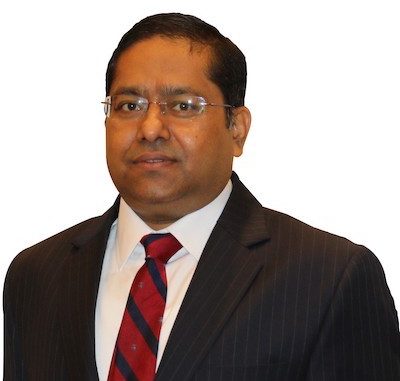
Prof. Indrajit S Saluja & Bidisha Roy
We are pleased to introduce to the readers of The Indian Panorama a very special person. He is India’s 23rd Consul General at New York. Ambassador Randhir Jaiswal succeeded Ambassador Sandeep Chakravorty who is now at Ministry of External Affairs in New Delhi . Ambassador Jaiswal assumed charge on July 19, 2020.
Ambassador Randhir Jaiswal is a career diplomat. He joined the Indian Foreign Service in 1998. In his over two decades of diplomatic career so far, he has served in Portugal, Cuba, South Africa and at the Permanent Mission of India in New York.
In between his overseas assignments, he served in New Delhi at the Ministry of External Affairs, first as Deputy Secretary looking after India’s relations with the United States of America, and then as Joint Secretary managing India’s relations with West European countries. In the middle of 2017, he was deputed to serve the President of India as Joint Secretary managing his international relations portfolio.
Randhir Jaiswal is passionate about sports, environment, culture, monuments, old cities and cuisines. He is deeply interested in strategic, sustainable development and public policy issues. He has been part of India’s delegation at various Climate Change Conferences and was the lead negotiator for the G-77 countries at the RIO+20 Conference held in Brazil in 2012.
He holds a Master’s degree in History from Delhi University, India.
He speaks Hindi, English, Portuguese and Spanish and is conversant with several dialects of Bihar, India.
He is married to Dr. Abha Jaiswal, a public health expert. The couple has two daughters.
On August 5, editor Prof. Indrajit Saluja and assistant editor Bidisha Roy got to formally interview in person the new Consul General.
The full text of conversation runs into 8000 words. However, keeping in mind that readers prefer brevity, which is the soul of wit, as William Shakespeare said, we have edited the interview and are giving below a few excerpts. Should The Indian Panorama Readers have any question, they may write to us at editor@the Indianpanorama.com or go to https://pramit.indiainnewyork.gov.in/ and send their questions/ queries/ concerns to the Consulate.
We have the solemn commitment from Ambassador Randhir Jaiswal that he will ensure the community receives efficient consular services and the best cooperation from the Consulate. Communicate directly with the Consulate; no agents or intermediaries are welcome, he says.
Here are excerpts from the interview.
TIP: What do you think of accomplishing as consul general which would create a legacy?
CG: You have asked me very straight question. I would like to answer a little differently. You know our engagement with the United States of America and the engagement with the Indian community in this part of United States for which the Indian consulate of NY is responsible. We see this engagement as a continuation . Therefore, the question of legacy etc. is part of this continuation. You know this consulate has had very close relationship, very engaging relationship with the Indian diaspora. It would be my endeavor to further strengthen and further deepen this connection. We want the community to continue to warmly embrace the consulate. There are new developments happening on a daily basis. We live in a hyperconnected world. We are living in a digital world and these new developments provide new opportunities for us to be connected with the community and serve them better. So it would be my endeavor to see how best we can bring these new technologies and new developments in our engagement with the community. So, community work and community engagement, of course, will be top priority. We would also like to see how best we can engage with the community and strengthen economic ties between India and United States. That is the priority for government of India to strengthen ties with United States in trade, technology , and investment . There are immense opportunities waiting for US business es and corporate houses. The Indian community here plays an important role in people to people partnership. The Indian community, given it size, given its achievements in the United States has played a leading role in enhancing the ties. And being a living bridge between US and India, I would seek their support to see how best we can take our mutual understanding between the two countries forward with their help and with their participation.
TIP: You have spoken about three areas of cooperation. The top priority you have said is promotion and strengthening of relationship with the community. The second area you spoke of is to have better relationship, economic , trade and business relationship between India and the United states. And, you also spoke of immense opportunities for investment in India. Are you looking at the Indian American community to be investing in India or you are looking at the bigger picture of American investment in India?
CG: We are looking at bigger picture. But the Indian American community because of their close connection with India, understand business eco system in India very well. So, that gives them extra edge to play out important facilities between business houses. Business they can hand hold and they can bring shoulders together and see how best we can make investments to happen between India and United States; both ways from India to the United States and from United States to India. Recently, Prime Minister announced reforms in the space sector, in financial services and insurance sector, in health. In the agriculture sector we have undertaken several new reforms and these open up new opportunities for participations. I specifically focus on health, financial and insurance, defense and agriculture sectors because there are immense possibilities between what we can learn and what we can gain from United States. There is a whole new world of opportunities waiting.
TIP: You have been in New York earlier as Consul at PMI. You already know the Indian community. So, do you think it will give you advantage?
CG: Yes, in a sense that I am familiar with the territory here, familiar with people and organization s and also the kind of functions. It gives me an advantage which will help me in carrying out my responsibilities. Indian organizations are organized here on culture lines, economic lines etc. So, I am familiar with the landscape and that surely will help me. If you go any country and you are familiar with the city, it becomes easier to engage with people. In the last two weeks that I have been here, I have started to meet diaspora organization in Ohio, Pennsylvania, Philadelphia so far, and also speaking to diaspora through The Indian Panorama and through channels as well to connect with them. You know this relationship is about partnership not for ourselves but for both the countries. Whatever we do we are going to be promoting mutual understanding and mutual interest in both the countries.
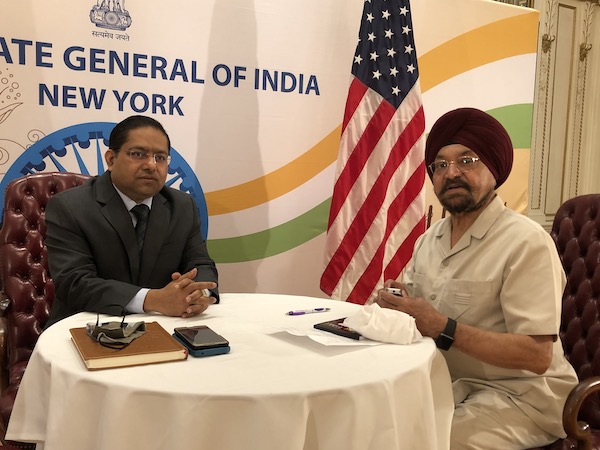 TIP: I come back to the economic aspect of relationship. There is a much better investment opportunity in the pharmaceutical sector because India is probably one of the largest producers of generic drugs and other drugs. And there are a lot of companies in America that are interested in working with Indian pharmaceutical companies. What special advantages can the Govt. of India offer to the big pharma industries here? What special incentives do you think government of India can offer to attract American investment?
TIP: I come back to the economic aspect of relationship. There is a much better investment opportunity in the pharmaceutical sector because India is probably one of the largest producers of generic drugs and other drugs. And there are a lot of companies in America that are interested in working with Indian pharmaceutical companies. What special advantages can the Govt. of India offer to the big pharma industries here? What special incentives do you think government of India can offer to attract American investment?
CG: India is known as the pharmacy of the world. We produce a lot of generic drugs in India which are exported to the United States. So what India does today is being helpful to the world and to the United States as well. Even on research side we are collaborating very closely even during the Covid-19. You would be aware that there are several Indian companies, several Indian entities and US entities which are working together to produce a vaccine for Covid-19 . We have rolled out FDI policies which are of best interest to people who want to invest in India. We also have a large skilled manpower which can be taken advantage of by American companies and entities which want to invest in India in pharmaceutical sector. Even research and development infrastructure is expanding, and there again, because R& D is important component for pharmaceuticals industry. We have dedicated parks for pharmaceuticals industries located in various part of India. Those are some of the incentives that could be utilized by American companies. The prime minister recently talked about ATMA NIRBHAR BHARAT. ATMA NIRBHAYA BHARAT is about strengthening domestic capacity so that we can then strengthen global supply chains and make the global economy escalate.
TIP: A large number of our youth who are mostly students, and professionals are not at all sufficiently attracted towards Indian way of life and Indian culture. Do you think the consulate should be trying to promote Indian culture among this vast number of people who are responsible or who will be responsible for passing on the Indian values to their own children?
CG: So you know as far as consulate is concerned, we are actively promoting Indian culture and various forms of Indian culture from dance, drama, theater, music, languages etc. We have several programs including the one to send young people from various parts of the world to go and see India and see various specifics of India. That is one exposure program that we have. We also conduct several other programs such as quizzes about India- “know India”. This 15th of August here in this consulate we are organizing an essay competition wherein we are asking the participants, and mostly they will be young friends from the Indian American community, and of course open to everybody else, to write about Indian freedom struggle and the contribution of overseas Indians in that freedom struggle. You would be aware that we had our leaders and freedom fighters who were based in United States from Ghadar Party and others, in San Francisco and elsewhere and they played a leading role and the Indian community here and people in general should be aware of the kind of role that freedom fighters staying in United States played in India’s freedom struggle. You know Mahatma Gandhi himself was influenced by the great American Thoreau . So, it’s important that historical dimension of the relationship is not missed by young leaders, young community members . So, we are trying our best but obviously it’s such a huge expansive community. We look forward to partnership with cultural organizations. . We are living in a digital age. One thing which people understand, specially the youngsters, is that it the world of technology. Through the world of technology, we are trying to connect with the youth here to tell them all the excitement that is happening in India.. They will feel more connected .
TIP: Prospective investors are afraid of Red tape in India. My friend Harry S. Panaser who is a lobbyist shared with me how he prepared some to invest in India, but they feared it will not be easy to work in India.
CG: You know we have moved more than 65-70 places in the last five , six years in the ease of doing business. . We have made a significant jump. From 142 four years back we came down to 65.
TIP: I come to relationship with consulate’s relationship with media. How do you plan to effectively communicate with media?
CG: We are fully aware that media people are important partners in our engagement with the United States. Media has important role to play. We of course look forward to engaging with each and every segment to the media.. We are open about it. We would like to engage with them as much as possible.
TIP: August 5 is a significant day. What are your thoughts on this historic day?
CG: Today is one year of Kashmir action, of abrogation of article 370. Through your newspaper I would like to inform your readers and others here that a lot has happened on the ground in Jammu & Kashmir. In terms of development and giving good governance , much has been done. . After abrogation of article 370, various acts of India are now applicable to people in Jammu and Kashmir, whether it be women empowerment , domestic violence, the right to education, right to information , and so on. There is a long list for that. We also made changes for that transgender community who can benefit from social securities. 50 new educational institutions have been established, including 7 medical colleges and 5 nursing colleges. New modern infrastructure in terms of transit system for 2 cities have been planned. We have established international trading center for saffron growing in Kashmir because saffron is an important item that is grown in Kashmir and it is known globally. And it got a GI Tax.
We also brought benefits of digital technology to farmers in Jammu and Kashmir, to apple growers and establishing marketplace for them. Over half a million Kashmiri youth have benefitted from scholarships given in just one year alone There is a long list of things that we have done. Not everybody would be aware of the kind of things that are happening , and the changes that are taking place on the ground. 300,000 villages have been given electricity in just one year. Almost 300,000 household have been given tap water. People living in remote areas get tap water in their homes. Block development council elections have been held. For the first time in so many years. So we have a grassroots support approach. We have a pro- people approach and we have a right space approach. All these things put together are empowering people who now have more more economic choices.
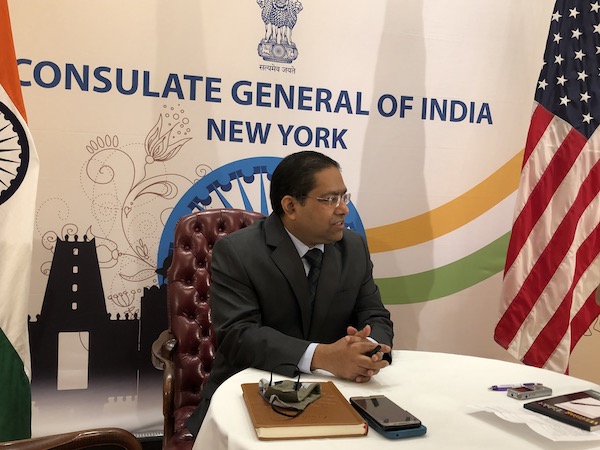 TIP: What message will you like to give to the Indian American community?
TIP: What message will you like to give to the Indian American community?
CG: My message is in beautiful words of Tagore .We have done very well to connect with everybody here but it would be my endeavor to bring the distance near, as near as possible.


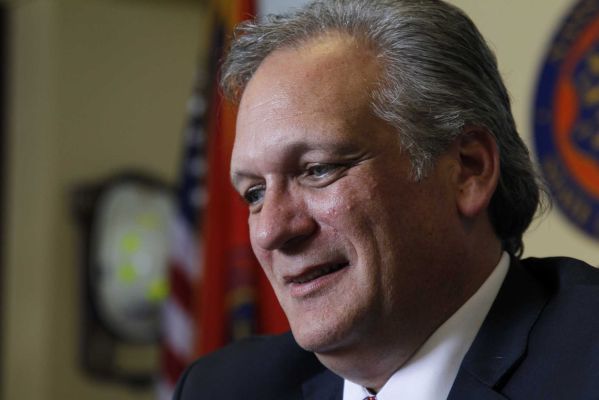

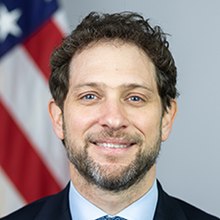
Nice post. I was checking constantly this blog and I am impressed! Extremely helpful information specially the last part :) I care for such information a lot. I was seeking this certain info for a very long time. Thank you and good luck.